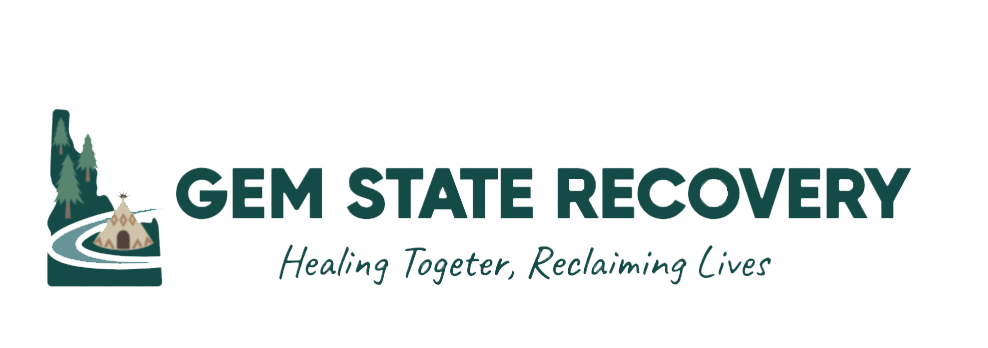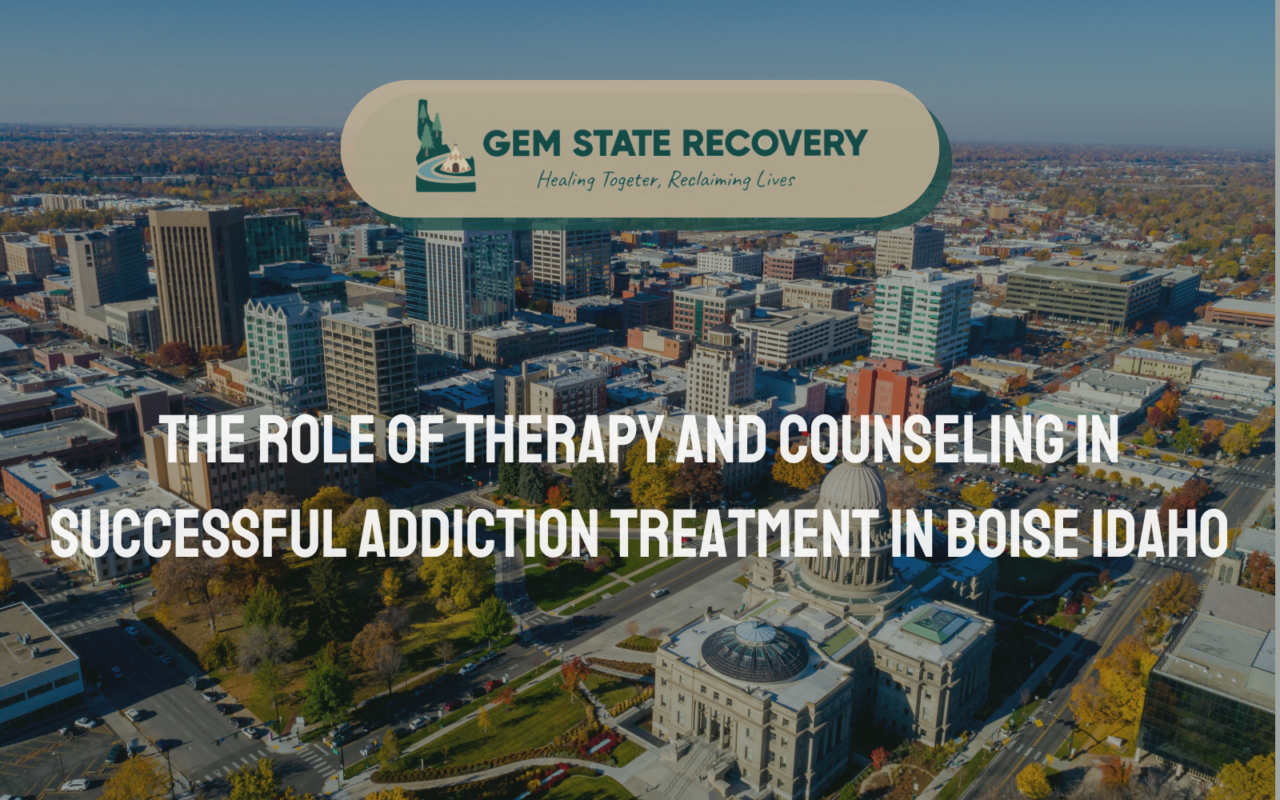Addiction is a complex and challenging issue deeply rooted in individual and societal contexts. In Boise, Idaho, the fight against addiction is taken seriously, thanks to comprehensive treatment plans that incorporate therapy and counseling as critical components for success. This blog post explores the indispensable role of therapy and counseling in effective addiction treatment in Boise Idaho, focusing on the unique landscape of the area.
Whether you’re part of the addiction recovery community, a local Boise resident, or a healthcare professional, understanding the immense benefits of therapy and counseling can provide valuable insights into how we can collectively address this pressing issue. In this guide, you’ll learn about the different types of therapy, their benefits, and how they integrate into a holistic treatment plan to ensure long-term recovery.
Introduction to Addiction Treatment in Boise, Idaho
Boise, Idaho, is not only celebrated for its beautiful landscapes and vibrant community but also recognized as a hub for progressive addiction treatment options. The city boasts numerous reputable centers that offer structured treatment programs incorporating medical, psychological, and social support. Understanding the comprehensive approach to addiction treatment in Boise Idaho, is crucial for anyone considering or involved in recovery.
Importance of Therapy and Counseling in the Treatment Process
Therapy and counseling are fundamental pillars of addiction treatment, playing a crucial role in the recovery journey. These approaches provide essential emotional and psychological support, helping individuals confront and navigate the complex root causes of their addiction, which can often include trauma, mental health issues, or environmental factors. Through various therapeutic modalities, such as cognitive-behavioral therapy, group therapy, and individual counseling, these interventions aim to restore balance and well-being in a person’s life. They offer valuable tools and coping strategies to manage cravings effectively, avoid relapse, and build healthier relationships with themselves and others. By fostering self-awareness and personal growth, therapy and counseling empower individuals to create a sustainable path toward recovery and a fulfilling life free from addiction.
Understanding Addiction
Definition of Addiction
Addiction is a chronic brain disorder characterized by compulsive substance use despite adverse consequences. This condition is often marked by an inability to control the consumption of a substance, leading to harmful outcomes in various aspects of life, including health, relationships, and professional responsibilities. It affects the brain’s reward, motivation, and memory functions, creating an unhealthy obsession with a substance or behavior. Over time, this compulsive behavior can alter brain chemistry, reinforcing the cycle of addiction and making it increasingly difficult for individuals to break free.
Factors Contributing to Addiction
Both genetics and environment play significant roles in addiction. Genetic predisposition can make some individuals more susceptible to developing addictive behaviors, as certain genetic factors influence how the brain responds to substances. Additionally, environmental factors such as peer pressure, stress, a history of trauma, and exposure to addictive substances at an early age can trigger the onset of addiction. A person’s social environment, including family dynamics and community influences, can further impact their vulnerability to addiction and their ability to seek help. For those seeking support, addiction treatment in Boise Idaho, offers valuable resources and care.
Impact on the Individual and Their Loved Ones
Addiction affects more than just the individual; it ripples out to loved ones, causing emotional, financial, and social distress. Family members often experience feelings of helplessness, frustration, and sadness as they watch their loved one struggle with addiction. Financial strain may arise from the cost of substances, legal issues, or treatment expenses. Socially, relationships can become strained or even severed due to the behaviors associated with addiction. Understanding these impacts allows for a more empathetic approach to addiction treatment in Boise Idaho, emphasizing the need for supportive environments that foster recovery. This understanding can lead to more effective treatment strategies that involve not only the individual but also their family and community, creating a holistic approach to healing.
Types of Therapy and Counseling Used in Addiction Treatment
Individual Therapy
One-on-one sessions with a licensed therapist provide a private and focused space to address personal issues related to addiction treatment in Boise Idaho. During these sessions, the therapist creates a safe environment where individuals can freely discuss their thoughts and feelings without judgment. These sessions often utilize approaches like cognitive-behavioral therapy (CBT) and motivational interviewing to help individuals gain a deeper understanding of their addiction, identify specific triggers that lead to substance use, and develop personalized coping strategies for daily life. The therapeutic relationship built during individual therapy can also be instrumental in fostering self-esteem and resilience.
Group Therapy
Group therapy offers a communal space where individuals struggling with similar addictions can share their experiences, offer support, and hold each other accountable. Led by a trained facilitator, these sessions encourage open dialogue and mutual understanding among participants. This group dynamic fosters a sense of community, which is invaluable for recovery as it helps to combat feelings of isolation and loneliness often associated with addiction. Participants can learn from one another, share coping techniques, and develop lasting friendships that continue outside of the therapy setting, creating a robust support network.
Family Therapy
Family therapy involves the individual’s loved ones in the treatment process, addressing communication issues, relationship dynamics, and codependency. In a structured environment, family members can express their feelings and concerns, which promotes healing and understanding. This type of therapy is particularly important because it helps create a supportive and understanding home environment, which is crucial for recovery. By improving family dynamics and fostering healthier communication patterns, individuals in recovery can return to a home life that reinforces their commitment to sobriety and emotional well-being. Additionally, involving family members can equip them with the tools necessary to support their loved one effectively as they navigate the challenges of recovery.
Benefits of Therapy and Counseling in Addiction Treatment
Identification of Underlying Causes and Triggers
Therapy plays a vital role in uncovering the root causes of addiction, which often stem from deep-seated issues such as trauma, unresolved grief, or underlying mental health disorders like depression and anxiety. By identifying these triggers, individuals can gain insight into their behaviors and emotions, which is essential for developing effective coping mechanisms. Understanding these foundational elements not only aids in recovery but also empowers individuals to confront the complexities of their addiction.
Coping Mechanisms to Manage Cravings and Prevent Relapse
Therapists in addiction treatment in Boise Idaho, provide practical skills and strategies to help individuals manage cravings and avoid relapse, ensuring they are better equipped to handle life’s challenges without resorting to substances. These coping mechanisms may include mindfulness techniques, stress management strategies, and support group participation. By building a strong toolkit of resources, individuals can navigate difficult moments and maintain their commitment to sobriety.
Improved Self-Awareness and Understanding of Emotions
Therapy fosters a greater sense of self-awareness, enabling individuals to understand their emotions and behaviors on a deeper level. This improved understanding is crucial for making lasting changes in their lives and maintaining sobriety. Through therapeutic practices such as journaling, reflection, and guided discussions, individuals learn to recognize patterns in their behavior and the emotional triggers that lead to substance use, allowing for healthier responses moving forward.
Addressing Co-occurring Mental Health Disorders
Many individuals struggling with addiction are also grappling with co-occurring mental health disorders such as anxiety, depression, or PTSD. Integrated therapy approaches in addiction treatment in Boise Idaho, take into account both addiction and mental health issues, addressing them simultaneously for a more comprehensive treatment plan. This holistic approach not only helps individuals develop strategies to manage their addiction but also provides support for their mental health, significantly enhancing the likelihood of long-term recovery and overall well-being. By treating both aspects, individuals can find a path to healing that acknowledges and addresses the full spectrum of their challenges.
Integration into Comprehensive Treatment Plans
Collaboration Between Therapists and Other Treatment Professionals
Effective treatment plans often involve a collaborative effort between therapists, doctors, nurses, and support staff. This multidisciplinary approach fosters open communication and sharing of expertise, ensuring that all aspects of the individual’s well-being, including physical, emotional, and psychological health, are thoroughly addressed. By working together, these professionals can create a comprehensive care plan that considers the varied needs of the patient, ultimately leading to more effective outcomes.
Individualized Treatment Plans Tailored to Needs and Goals
Personalized treatment plans are meticulously designed to meet the unique needs and goals of each individual, taking into account their specific circumstances, preferences, and challenges. This tailored approach not only enhances the relevance of the treatment but also increases the likelihood of successful recovery. By incorporating feedback from the patient and adjusting the plan as needed, healthcare providers can ensure that individuals feel supported and engaged in their recovery journey.
Continuity of Care Throughout Different Stages of Treatment
Care continuity is crucial, spanning from the initial treatment phase to aftercare. This ongoing support ensures that individuals receive consistent care throughout their recovery, minimizing gaps that could hinder progress. By maintaining regular check-ins and follow-up appointments, healthcare providers can monitor the patient’s progress and make necessary adjustments to the treatment plan. This cohesive approach significantly enhances individuals’ chances of achieving long-term recovery, as they benefit from a stable support system that encourages resilience and growth.
Insurance Coverage Options for Therapy and Counseling Services
Understanding insurance coverage for therapy and counseling is crucial. Many insurance plans cover these services, including Medicaid and private insurance options, making treatment more accessible.
The Importance of Seeking Professional Help
Stigma Surrounding Mental Health and Addiction
Despite significant progress in recent years, stigma still surrounds the topics of mental health and addiction. Many individuals may feel ashamed or hesitant to seek help due to societal misconceptions and negative stereotypes. Breaking this stigma requires a collective effort that emphasizes education, empathy, and the sharing of personal stories. By encouraging open conversations about mental health and promoting resources like addiction treatment in Boise Idaho, we can create an environment where individuals feel empowered to seek help without fear of judgment or discrimination.
Benefits of Seeking Help from Trained Professionals
Seeking help from trained professionals offers numerous benefits that can greatly enhance the recovery process. These experts bring a wealth of knowledge and experience, allowing them to provide tailored treatment plans that address the unique needs of each individual. In addition to their expertise, mental health professionals offer compassion and support, helping clients navigate their challenges with care. Research has shown that individuals who engage in therapy or counseling often experience significantly improved recovery outcomes, including better emotional regulation, healthier coping strategies, and an overall enhanced quality of life.
Compassion and Understanding in Therapy Sessions
Therapy sessions provide a vital safe space where individuals can openly explore their struggles without fear of judgment. This supportive environment fosters trust and encourages honest communication, which is essential for effective healing. During these sessions, therapists employ various techniques to help clients gain insight into their feelings and behaviors, promoting self-discovery and personal growth. The compassionate approach taken by mental health professionals helps individuals feel understood and validated, which can be incredibly therapeutic in itself. By prioritizing mental health and seeking professional support, individuals can embark on a transformative journey toward healing and well-being.
About Gem State Recovery
Gem State Recovery is a leading addiction treatment center specializing in integrated care for individuals struggling with substance abuse and co-occurring mental health disorders. Our team of experienced professionals offers personalized treatment plans, utilizing evidence-based therapies and holistic approaches to support clients on their journey to recovery. We believe in the power of collaboration and work closely with each individual to develop a comprehensive plan that addresses their unique needs and goals. At Gem State Recovery, we are dedicated to providing compassionate, understanding, and effective care to help individuals achieve lasting recovery and overall well-being. If you or someone you love is struggling with addiction or mental health issues, reach out to us today to learn more about our addiction treatment in Boise Idaho, and how we can help.
Conclusion
Therapy and counseling play an indispensable role in successful addiction treatment in Boise Idaho. They offer a holistic approach to recovery, addressing not just the symptoms but the underlying causes of addiction. By integrating therapy into comprehensive treatment plans, individuals are better equipped to achieve long-term sobriety and improved quality of life. If you or someone you know is struggling with addiction, don’t hesitate to seek help. There’s no shame in asking for support—it’s the first step towards a brighter, healthier future. Remember, addiction treatment in Boise, Idaho can make a significant difference. Visit our website https://gemstaterecovery.com/ or call us at (208) 314-3107.






